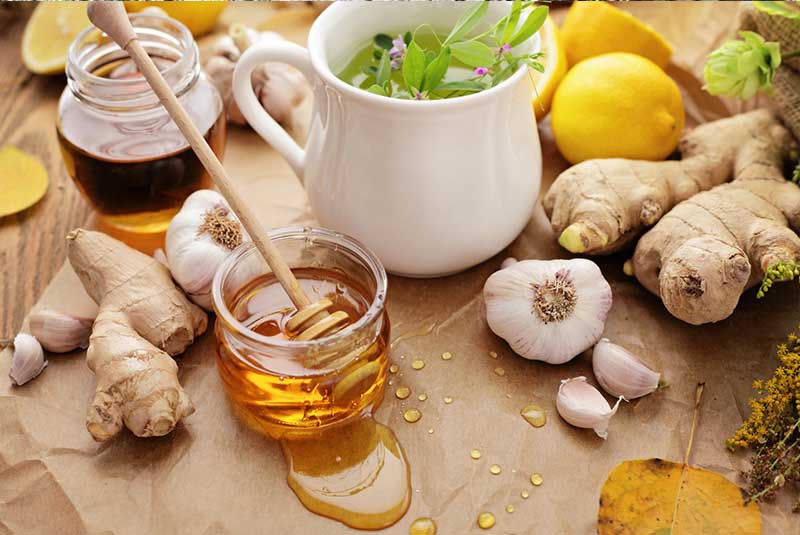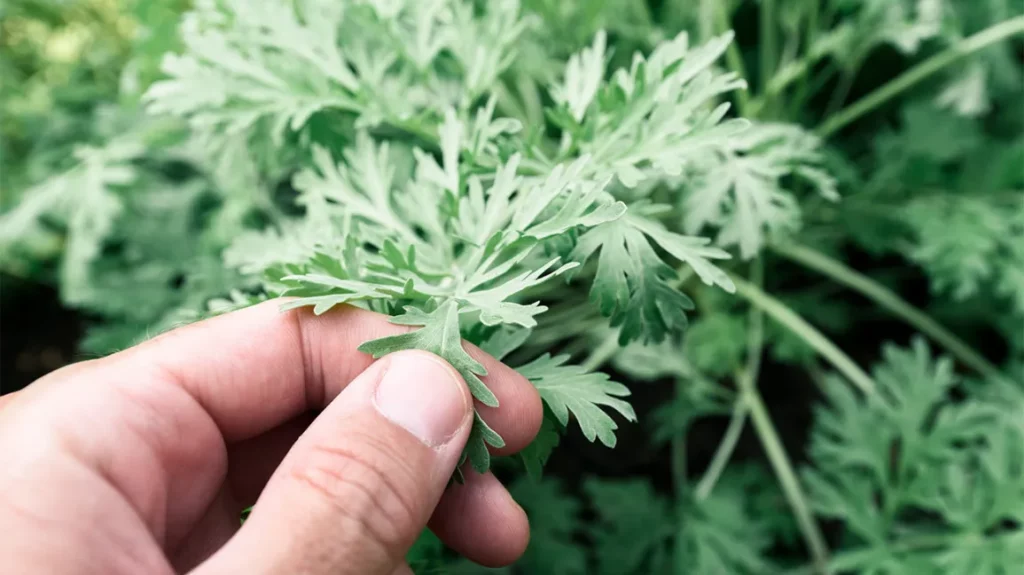Do you ever wonder how people treated flu and infections before the medicines appeared on the market? It’s simple – naturally.
Many herbs and plants might help you ease bacterial infections and get over the flu without damaging your gut and positive bacteria. If you need a tip for camping or bushcraft, it is good to recognize what are some natural antibiotics that can be found in the wild.
You can use herbal and natural antibiotics in everyday living for a healthier immune system and bacterial infection recovery. The gut and stomach will be happy if you heal naturally without taking prescribed antibiotics that harm digestion.

What Are Some Natural Antibiotics?
- Garlic
- Aloe vera
- Eucalyptus
- Honey
- Ginger
- Turmeric
- Echinacea
- Wormwood
- Licorice
- Oregano oil
You might have heard about some natural antibiotics from the grandparents. Some people living outside the town prefer healthier living and usually avoid medications and prescribed antibiotics.
Naturally occurring antibiotics fight against bacterial infections without damaging the microflora and digestion. Numerous studies stand behind the healing power of most herbal antibiotics, which is why I chose to share some of them with you.
How Some Natural Antibiotics Fight Bacterial Infections
Garlic
Garlic is one of the oldest natural antibiotics, used for thousands of years. Some people call garlic an edible medicine because it is a powerful remedy for various viruses, fungi, and bacteria. This is also claimed and confirmed by various studies.
Ancient Chinese medicine recommended garlic use for aiding respiration and digestion. Garlic might help treat leprosy, parasitic infestation, chronic cough, snake and insect bites, and other infectious diseases.
Carrying garlic cloves with you might help you cure infection or insect and snake bites while in the woods or elsewhere under the open sky.
Aloe vera
Aloe is a natural aid for infections, burns, and skin trauma. Aloe vera is the best plant that might help you treat a wound or other skin irritation externally. The jelly inside the plant was used for centuries.
The antimicrobial properties of this plant might interrupt the spread of bacterial infections like mycoplasma.
Eucalyptus
Eucalyptus is another remedy that might help you ease the signs of cold, asthma symptoms, and bacterial infections.
A study has shown that eucalyptus oil might have powerful antimicrobial effects against bacteria like Mycobacterium tuberculosis and Methicillin-resistant Staphylococcus aureus (also known as MRSA). Also, eucalyptus might fight against other types of viruses and fungi, like Candida.
Also read: What Are the Top 10 Survival Items?
Honey
Honey is a popular natural remedy used for centuries. Even in the time of Aristotle, ancient people used honey to treat wounds and prevent infection draw-out.
The antibacterial properties in honey are given by its hydrogen peroxide content. However, all components of the honey work synergistically, providing potent aid against multidrug-resistant bacteria.
However, the antibacterial properties of honey depend on the produced type of honey, botanical origin, processing method, etc. But, the natural honey found in wild bee yards is a rare antibiotic aid you can find under the open sky.
Ginger
Ginger is an excellent ingredient for a flu-easing tea. But, the ethanolic ginger extract might fight against numerous infections caused by bacteria and microorganisms.
A study has shown ginger might kill bacteria like Streptococcus mutans, Candida albicans, and Enterococcus faecalis. The study resulted in a positive antimicrobial effect of ginger extract against all three pathogens.
The Food and Drug Administration declares ginger as a safe, natural compound that might be beneficial for human health because of its antioxidant, antimicrobial, anticoagulant, and anti-inflammatory effects.
Turmeric
Turmeric is a spice present in almost every kitchen, with a beautiful golden color. This powder can be used in an edible form or as a topical. Its antibacterial properties might fight against infections and protect the body from other bacteria.
A study published in 2013 shows that turmeric can inhibit the spread of Escherichia coli, Salmonella typhi, Candida albicans, and Staphylococcus aureus. Also, turmeric might be effective in controlling the growth of other microbes and bacteria present in the body.
If you mix turmeric with honey, you get a potent wound-healing antibiotic. Mix these two ingredients and use the blend externally, directly on the wound, or other types of skin damage.
Echinacea
These plants are also known as coneflowers and are typical for North America, Canada, and Europe. Traditionally these flowers have been used for improving the immune system and healing wounds because of their powerful antibacterial agents.
The antibacterial and antimicrobial agents of this flower are considered safe. The antibacterial properties present in this flower might effectively fight against Staphylococcus aureus, Streptococcus spp, Mycobacterium, etc.
Wormwood
Wormwood, or Artemisia absinthium, is a herb used in some alcoholic drinks. A study has shown that Artemisia absinthium had significantly high antimicrobial activities than other similar compounds.
Wormwood might be effective in fighting against Gram-positive pathogenic bacteria.

Licorice
Licorice has over 300 compounds that give this root its antibacterial and anti-inflammatory effects. The Licorice can be used for treating skin conditions and wounds.
This root might help you out with various diseases and bacteria, like malaria, tuberculosis, Bacillus subtilis, Staphylococcus aureus, Streptococcus sobrinus, S. mutans, Escherichia coli, Salmonella typhimurium, Vibrio cholera, Toxocara canis, Trichophyton mentagrophytes, etc.
Licorice works excellent with other herbs and has no side effects.
Oregano oil
Oregano is a herb with high antimicrobial activity against Gram-positive bacteria. Oregano has the highest antibiotic power when it is compressed into the oil.
A study showed that externally used oregano oil might act as antibiotic treatment for wound-related infections, no matter their antibiotic susceptibility.
Conclusion
If you were wondering what are some natural antibiotics you could find in nature, the list above should give you the answer. Many plants and herbs have high antibiotic effects, which is why ancient people were stronger and lived longer.
I recommend replacing antibiotic medications with natural herbal alternatives as soon as possible to keep your body healthy and immunized.
